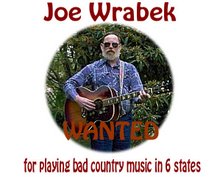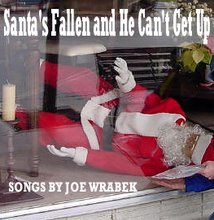Ran across another of those “songwriting rules” articles, this one from one of the big song-contest outfits. I am bothered by hard-and-fast rules. Not only do I not work the way the article said to, I’m pretty sure a lot of famous writers don’t, either—their stuff comes out completely different than it would have if they’d followed those rules. I guess I won’t be entering their contest—not if they’re insisting the winning songs have to fit those rules. Mine won’t.
Unlike the song-contest folks, I am not going to claim the way I do it is The Right Way. There may be no Right Way. You have to do what works for you—keeping in mind that the bottom line is whether an audience is going to appreciate what you’ve done.
I hear music—I don’t write it. One of the legacies of growing up in the ‘60s is I hear music in my head 24 hours a day. I think of it as “the Soundtrack from God.” Most of that music doesn’t have words. That’s where I come in.
Pieces of that soundtrack will start to grow words, and I’ll try to freeze that piece of the soundtrack in place, and make it play over and over again. Sometimes, the subject matter will be deliberate; more often, it’ll be triggered by some event, or maybe a question I’ve asked myself. Yes, the lyrics will usually reflect something that’s going on in my life, but oftentimes I’ll be asking for days afterwards what it was.
I don’t try to pick out the melody on a keyboard; instead, I’m trying to sing what I hear. I’ll figure out what exactly the notes are later. I have a narrow voice range, so I’ll make adjustments to fit what I can do. In the process of singing it over and over again, I’ll be tweaking the words, making them fit better, making them not be redundant, making them easier to remember and to sing. Sometimes, I’ll have a structure in mind; I’ll know how many verses I want and have an idea what I want to get across in each verse. I will keep in mind a few rules of my own: (1) the result must express a complete thought, with no loose ends, (2) it needs to do that in 3-1/2 to 5 minutes, with and without a lead break, and (3) it has to be either saying something new, or saying something old in a new way.
The music for the chorus does not have to be different from the music for the verses. The operative question, according to some writers of “congregational” (i.e., church) music, is, “Is the congregation going to be singing along?” If they are, then the chorus should begin differently, so you can have a transitional measure or two at the end of the verse to signal the congregation that the chorus is about to start. Note they said “begin.” The music for the chorus should parallel that of the verses as much as possible, so that the congregation knows what notes to sing (because they heard them in the verses). Sometimes, my verses and chorus will have the same melody because (1) I’m not expecting the audience to sing along, or (2) I couldn’t find an easy way to start the chorus differently. And sometimes the chorus is completely different from the verses, because that’s the way it sings. Bridges? In my opinion, you want a bridge to cross a body of water you can’t ford, or dodge, or chevy. A lot of lyricists whose work I “musicate” put bridges in songs. I almost never do.
Then I’ll pick up the guitar. My voice range usually dictates what key the song is going to be in. I know enough music theory to know what notes make up what chords, what chords follow each other in logical progressions, and what notes transition from one chord to another. So I will figure out the chords. If I’m in doubt about a particular note, I have a cheap electronic tuner that picks up ambient noise, and I can sing at it, and it’ll tell me what note I’m singing. While I’m thinking (and singing) notes, I’m playing chords, because I will be performing this either solo or as rhythm guitarist in the band.
Next, a little housekeeping: Should the lead break follow the verse progression? Chorus? Something completely different? What will the intro be like? It is important that each song sound different. (In part, that helps me not get confused.)
And finally, I’ll test it out on a live audience. If they like it, it’s good. The only opinion that counts is that of the audience. If they request it again, it’s a “keeper,” and if they request it a lot, it may go on the next album.
And that’s what I do. It’s not what the “how-to” article from the song contest people said. It is closer, maybe, to what the hit writers do. Is it right? Who knows? I’d feel more confident about it if I were making money at it.
Joe
WELCOME...
This blog is the outgrowth of a songwriting workshop I conducted at the 2006 "Moograss" Bluegrass Festival in Tillamook, Oregon. It presumes that after 30-odd years of writing and playing music, I might have something to contribute that others might take advantage of. If not, it may be at least a record of an entertaining journey, and a list of mistakes others may be able to avoid repeating.
This blog is intended to be updated weekly. In addition to discussions about WRITING, it will discuss PROMOTION--perhaps the biggest challenge for a writer today--as well as provide UPDATES on continuing PROJECTS, dates and venues for CONCERTS as they happen, how and where to get THE LATEST CD, the LINKS to sites where LATEST SONGS are posted, and a way to E-MAIL ME if you've a mind to.
Not all these features will show up right away. Like songwriting itself, this is a work in progress. What isn't here now will be here eventually. Thank you for your interest and your support.
Subscribe to:
Post Comments (Atom)



No comments:
Post a Comment